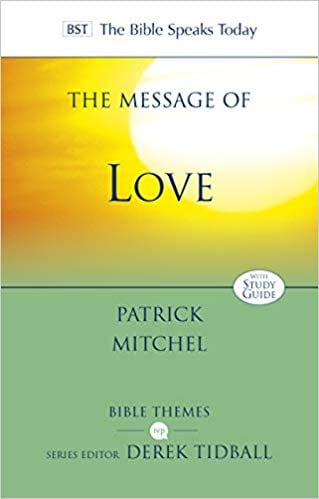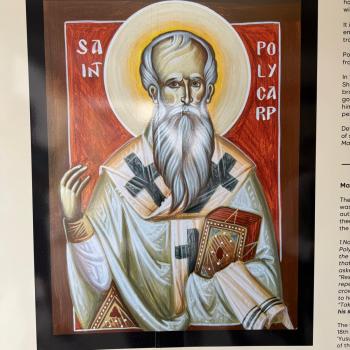BEN: Early on as well, you say “love is the golden thread that ties the doctrine of God, the Trinity, the cross, the story of redemption, the work of the Spirit, holiness, the calling and mission of the church, the goal of the Christian life and the eschatological hope together.” (p. 12). You might well have added it ties the OT and NT together, to some extent. In what sense is this true? Is love the glue that holds all these apparently different things together, or would it be better to say that it is the hermeneutic that helps us see the linkage between all these doctrines and praxis?
PATRICK: Yes, it probably would be better to put it that way Ben. The point I was trying to make is how each one of those things cannot be understood rightly if love is not front and centre in each case. Every one of them comes up in the book somewhere. I could have added in the life and teaching of Jesus (Part 3 of the book), a biblical theology of the body, sex and marriage (ch 5 on Song of Songs and ch 16 on Ephesians 5) and even how love is God’s ‘weapon’ in his cosmic war with sin and evil (ch 15 on Galatians 5).
BEN: Let’s talk about hesed for a bit. There are some 245 uses of this word in the OT, and overwhelmingly, it is translated in the LXX as ‘mercy’. It is found both as a description of how God relates to his own people, but also how he relates to others. I don’t really find the translation ‘covenant love’ as helpful, for several reasons. I much prefer loving kindness, or compassion, or mercy or the like, as do the translators of the LXX it would appear. I once had a chat with Walter Brueggemann about this and he was taking the traditional Reformed line about it meaning covenant love, and I said— ‘but it can’t be confined to that since it is also talking about how God relates to others not within the covenant, or even to covenant breakers– he has mercy on them not because he made a deal with Israel, but because that’s the kind of God he is. And in any case, God is not obliged to fulfill his positive part of the covenantal bargain if the covenant has been repeatedly broken by Israel. Indeed, he could simply implement the curse sanctions and move on. In short, I don’t think this has in the main to do with the covenant issue, it has to do with the character of God himself, inside or outside of the Mosaic covenant. In that respect, it seems more like the statement in 1 John 4 saying God is love. How would you react to this approach?
PATRICK: I’d agree. In the book I comment that hòesed conveys a sense of deep relationship which can include covenant relationship (as in Exod. 34) but is not necessarily restricted to covenant love. It depicts a relationship marked by love, goodwill, loyalty, affection and faithfulness. In Exodus 34:6 it is closely linked to compassion, graciousness and faithfulness. The good news here is that God is reliable and trustworthy; hòesed love means he is not fickle or vindictive. I can think of nothing more terrifying than an all-powerful God who is simultaneously capricious.













